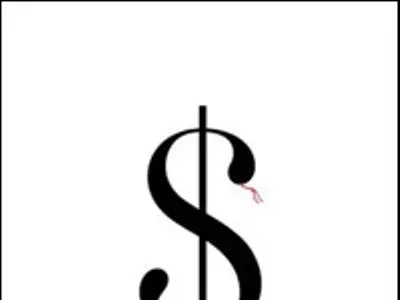
Audio By Carbonatix
[
{
"name": "GPT - Leaderboard - Inline - Content",
"component": "35519556",
"insertPoint": "5th",
"startingPoint": "3",
"requiredCountToDisplay": "3",
"maxInsertions": 100,
"adList": [
{
"adPreset": "LeaderboardInline"
}
]
}
]
Last year, Detroit saw many talented male poets earn book publication, such as Robert Fanning and Peter Markus. But the tables have turned. In 2007, it's the ladies who rule. These five books are the best of our very best, and they're all first books by women.
Soluble Fish
by Mary Jo Firth Gillett
Southern Illinois University Press, $14.95, 81 pp.
Many poets try to write love poems. Many poets try to be funny. Gillett actually pulls off both. A longtime poetry instructor for Springfed Arts-Metro Detroit Writers, she won the 2006 Crab Orchard Series in Poetry First Book Award for this, her full-length debut.
This wonderful collection is at once whimsical and grave, serene and chaotic. Somehow, Gillett celebrates science and faith in a single breath. She unblushingly praises sex, "the deep sweet oblivion of skin on skin." She asks hard questions too, such as why humans are so violent. Overall, though, Gillett's poems are optimistic, honoring a world with fish (her symbol for nourishment) "where joy is still possible/despite history's lessons."
Exiliana
by Mariela Griffor
Luna Publications (Toronto), $14.95, 73 pp.
Mariela Griffor is arguably Detroit's most popular poet. Founding Marick Press in 2005 landed this Chilean on the national literary map — and now her first full-length collection guarantees a permanent spot. Exiliana brings to mind Pablo Neruda, with such sweetness and simplicity. These autobiographical pieces tell of lust, murder, exile, grieving and healing. The local political landscape is also a major topic. In "Detroit," Griffor asks why there are so many churches but no God. She jokes, "Could He be hiding/under politicians' coats?"
Folding a River
by Kawita Kandpal
Marick Press (Grosse Pointe Farms), $14.95, 51 pp.
Sometimes you can judge a book by its cover. Folding a River, published locally by Marick Press, is beautiful inside and out. This melancholy collection boasts the most highlighted lines of all the piles I've read this year. To pick merely one quotation to reprint here is like asking a fashion designer to wear one dress for the rest of her life. Kandpal's first book is a sensual dance of bird, sea, earth and light; it is a kiss with the lips of sorrow. Folding a River would be fantastic for that word-junkie friend of yours, the one whose favorite books get wrinkled and water-warped from the bath.
Lands I Live In
by Zilka Joseph
Mayapple Press (Bay City), $12.95, 37 pp.
Published locally, Lands I Live In was written by an immigrant of India, a lady who, as she says, "feels the moment intensely." She's been living in the area for a decade now, teaching poetry workshops for Springfed Arts-Metro Detroit writers and currently studying in the University of Michigan's MFA program. This first chapbook (an interim step between journal publication and a full-length book) explores themes of homesickness, courage and displacement. It also works as both a critique and adoration of the United States, "a country of blue jeans and perfume." Told in a direct, conversational style, Joseph's book is invitingly accessible — perfect for the friend or relative who's just been turned on to poetry.
The Reverse is Also True
by Norene Cashen
Doorjamb Press (Royal Oak), $10, 71 pp.
Reading The Reverse is Also True is like having a conversation with a very old soul. This former Metro Times arts writer and current contributing editor to the journal Dispatch Detroit writes brilliantly, in a style similar to W.S. Merwin. These sparsely punctuated poems feel like parable or myth, issuing from the lips of a concerned prophet. Meant to be read slowly, out loud, these somber lyrics wrestle the biggies: Truth, war, history, death, religion. She even critiques the art form she's using, deeming poetry "a disease of eloquence."
Whatever it is, whatever that magical factor is that makes poetry "good" — Cashen's got it. And she probably freaks out a lot of poets, too, admitting what many won't or can't: "I write the same poem over and over/Because I believe I am writing/The other one."





